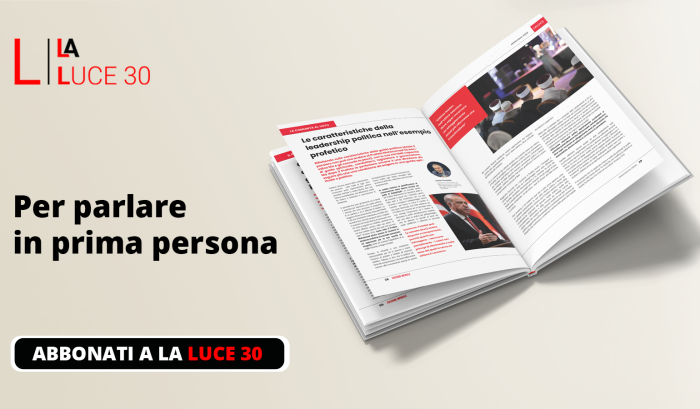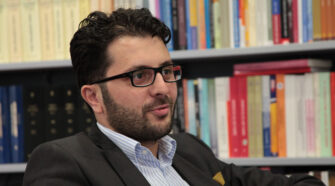The fifth edition of the European Report on Islamophobia funded by the European Union has recently been published by the SETA research institute. The report analyzes discrimination phenomena by recording case studies and data for the year 2019 on 32 European countries, including Italy.
The European Islamophobia Report (EIR) aims at analyzing and studying the spread of islamophobia in Europe. Gathering various experts from each target country the reports assess the causes and effect of anti-Muslim hatred.
The editors:
- Enes Bayrakli, PhD from the Department of Political Science at the University of Vienna, deputy director at Yunus Emre Turkish Cultural Center in London in 2011-2013. Mr. Bayraklı also served as the founding director of Yunus Emre Turkish Cultural Centers in Constanta and Bucharest during the period of August-December 2012. Mr. Bayraklı has been a faculty member in the Department of Political Science at the Turkish-German University since 2013. His fields of research include the Transformation of Turkish Foreign Policy, Cultural Diplomacy, Foreign Policy Analysis, German Politics and Foreign Policy.
- Farid Hafez PhD from the Department of Political Science at the University of Vienna. He is a political scientist and non-resident senior researcher at Georgetown University’s “The Bridge Initiative” at the School of Foreign Service. He defended his habilitation thesis on “Islam Politics in the Second Republic of Austria” at the University of Salzburg in 2019. In 2017, he was a Fulbright visiting professor at the University of California, Berkeley and in 2014, he was a visiting scholar at Columbia University, New York. Since 2010, he has been the editor of the Islamophobia Studies Yearbook, and since 2015 the co-editor of the European Islamophobia Report. Hafez has received the Bruno Kreisky Award for the “Political Book of the Year” for his anthology Islamophobia in Austria (co-edited with John Bunzl).
SEE THE COMPLETE REPORT HERE
The analysis of islamophobia in Italy detailed in the report was written by Antonia Roberta Siino, Phd in sociology and social research at the University of Bologna. Siino also worked on studies about organized crime and its relation with civil society. She is also the author of various publications for the Sociological review, one of the most important academic journals in the world on the subject of sociology. She also published for the academic journal Security and Social Sciences.
The report on Italy highlights that one of the problems when it comes to hate instances against Muslims in our country is the lack of governmental data. The report references a research conducted by Fabrizio Ciocca that showed that 65% of the 300 Muslims interviewed suffered violence and verbal or physical attacks because of their faith. This percentage rises to 70% for women only. The report then goes on to list a series of episodes of hatred. Among them is the following:
In Rome, a controller found a passenger on board of a train without a valid ticket. When he realized that the passenger was Muslim, he started insulting him by saying “it is better to be a pig than an Arab”.
EMPLOY
In the employment sector, the episodes of discrimination recorded for 2019 have seen a dramatic increase by 35%. Among the examples of discrimination reported is that of Mohamed, who was offered the job on condition that he agreed to wear a tag with the name “Max” instead of his name.
EDUCATION
Not even the education sector is exempt and the report quotes, for example, the case of a debate that took place in Mestre because of a group of families who did not want their children to eat food in a canteen that did not respect their religious sensitivity.
POLITICS
Politics is another area heavily affected by anti-Muslim hatred. The report quotes the bill proposed by the Lega Nord party during the period in which Matteo Salvini was Minister of the Interior which wanted to prohibit halal and kosher meat. Another proposal by the Lega Nord referenced in the report is the one that wanted highly restrictive rules for the construction of mosques.
The report also cites Amnesty International’s research conducted during the 2019’s election campaign which discovered that Salvini, Giorgia Meloni and Nicola Fratoianni have been the most active politicians in spreading anti-immigrant or anti-Muslim messages. Salvini spent at least 128,782 euros on dozens of sponsored posts against migrants. There are also posts by Salvini and Giorgia Meloni that speak of “holy war” in relation to Muslims, “Islamic migration”, Islamization of Europe “,” invasion “. The impact of hate political speeches is reflected online in the hate comments of users who support these politicians, who are in turn supported by far-right movements like Casa Pound.
MEDIA
The report also mentions the serious situation in the media sector. One of the recent books by anti-Muslim author Magdi Allam is mentioned along with the quote “In Italy, in Europe (…), in full respect of the Muslim people, we have the right and duty to ban Islam as a religion because of its incompatibility with our laws, rules and values “. Politician Belpietro’s statement is also mentioned when he commented on the donation of 10,000 euros for Carola Rackete by the Turkish organization Milli Gorus speaking of “incitement to conquest”. Finally, Vittorio Feltri, whose fame as hate preacher could not fail to be mentioned in the report. The report then highlights the strategy with which hate preachers justify their abuse:
“Even if they cannot be considered as central figures of an Islamophobic network,” says Siino “there is an element that these figures seem to share. They claim the possibility to distinguish between Islam as a religion – considered as incompatible with Western society and a source of terrorists – and Muslims as people. They claim that all their insults and verbal attacks are against the religion and extremists and that the Muslims living peacefully in Italy (respecting its culture) should be accepted”
JUSTICE
There are numerous cases in which the right to security has been used to justify a restriction of religious freedom as in wearing religious headdresses. Furthermore, a case is reported in which the Court rejected a provision of the Lombardy region with a ruling that aimed at intentionally making the construction of new mosques difficult. The Court rejected the provision by appealing to the constitutional principle of religious freedom and the right to have adequate spaces to practice worship.
INTERNET
The report mentions a research recently conducted by the Oxford Institute for the Internet in which it emerged that the news published by unreliable websites is more viral than the ones published by reliable sites and among the most viral news the most widespread ones are those against Muslims. The report cites the Facebook page “PAI – Anti-Islamization Party” as one of these hate lairs. A research by the Italian observatory Vox is also quoted, which shows how Twitter recorded an increase of about 7% of abusive tweets against Muslims just from 2018 to 2019.
THE HATE NETWORKS
The report then lists the main recorded network of hatred, among them are:
- the online and offline channels of the newspapers Libero and Il Giornale with particular references to Sallusti and Feltri and various authors from the two newspapers;
- The Casa Pound movement;
- The Lega Nord party;
- The Fratelli d’Italia party;
- The Forza Nuova party.
POSITIVE EXAMPLES
There have also been positive initiatives against Islamophobia promoted by Ca ’Foscari Univrsity and the SORAPS project – Study of religions against prejudices. Another initiative was promoted by Sapienza University together with the NGO “Un ponte per …” to reflect on strategies to combat Islamophobia. The initiative of the Archbishop of Bologna to replace the pork of a local recipe with chicken as a sign of closeness is also mentioned. Other initiatives to counter hatred against Muslims are the Vox (Italian Observatory on Rights)’s #Ispeakhuman campaign; the authorization granted by Ikea to Muslim employees to work with the veil and also creating a personalized veil with the Ikea logo; the conference organized in Montecitorio “Schools and Religions” and the Commission against discrimination established by the Senate on 31 October 2019.
FINAL RECOMMENDATIONS
The document ends with recommendations. They include the need to:
- Create mechanisms to collect information and data on Islamophobia in a structured way;
- Raise awareness of the effects of hate speech;
- Improve education against hate speech in schools;
- Promote the collaboration of the various actors involved in islamophobia;
- Promote a channeling of information and data on Islamophobia and which is currently lacking to the fragmentation of the various observers on islamophobia active in Italy.











